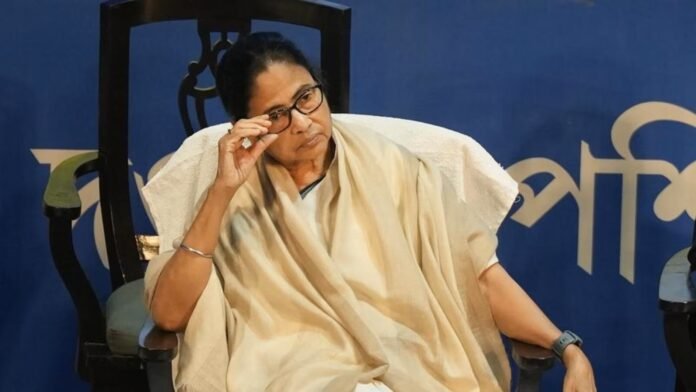In the wake of the Madhya Pradesh government’s landmark decision to introduce the death penalty for rapists of minor girls, Chief Minister Shivraj Singh Chouhan took a pointed dig at West Bengal Chief Minister Mamata Banerjee. The confrontation centered around the issue of rising crimes against women and children, particularly after the alleged gang rape and murder of a minor girl in West Bengal, a case that Chouhan directly referenced by asking Banerjee, “Will Shahjahan be hanged?”
This remark came after the Madhya Pradesh Assembly passed the stringent ‘The Criminal Law (Amendment) Bill, 2023,’ which prescribes capital punishment for those convicted of raping minor girls under the age of 12. Chouhan’s comment was aimed at Mamata Banerjee in light of public outcry and criticism over the handling of the Shahjahan case, a brutal crime that shocked the people of West Bengal.
The Shahjahan Case: A Catalyst for National Debate
The Shahjahan case refers to the horrific gang rape and murder of a minor girl in West Bengal. The crime caused outrage across the state, leading to protests demanding justice for the victim. The accused, including Shahjahan, were arrested and are undergoing trial, but delays in the judicial process and questions about political interference have raised concerns about the case’s ultimate resolution.
Shivraj Singh Chouhan’s challenge to Mamata Banerjee was meant to underscore what he sees as an urgent need for decisive action against rapists and those involved in heinous crimes against minors. His question, “Will Shahjahan be hanged?” is not just a political jibe but a larger question about justice for victims of gender-based violence and the role of governments in ensuring swift and fair punishment.
Madhya Pradesh’s Anti-Rape Bill: A Firm Stance on Women’s Safety
Madhya Pradesh’s move to pass ‘The Criminal Law (Amendment) Bill, 2023,’ which includes the provision of the death penalty for raping minors, is seen as a significant step in addressing the growing concern of crimes against women and children. Chouhan, who has positioned himself as a strong advocate for women’s safety, said that his government would not tolerate crimes against girls and minors. He emphasized that harsh punishments are necessary to send a clear message to society.
The bill is an extension of Madhya Pradesh’s earlier legal efforts in 2017, when it became one of the first states to introduce capital punishment for the rape of minors under 12 years of age. At the time, the move was hailed as groundbreaking, but there were also concerns raised by human rights groups and legal experts over the efficacy of the death penalty as a deterrent to sexual crimes.
Nevertheless, Chouhan believes that stricter laws and their rigorous implementation are crucial in reducing crime rates. He has often criticized other states, including West Bengal, for their alleged laxity in dealing with crimes against women, making the Shahjahan case a focal point in his criticism of Mamata Banerjee’s administration.
Mamata Banerjee’s Response: A Balancing Act
While Mamata Banerjee has yet to respond directly to Chouhan’s pointed question, she has been under increasing pressure to address the rising incidents of violence against women in West Bengal. Her government has often been criticized for not taking swift and strong enough measures to curb crimes against women, with opposition parties accusing her of ignoring serious issues in favor of political maneuvering.
Banerjee, however, has consistently maintained that her government is committed to women’s safety. She has pointed to several initiatives aimed at empowering women, including the ‘Kanyashree’ program, which provides financial assistance to girls in the state for education. Yet, high-profile cases like Shahjahan’s have placed her administration under a spotlight, questioning whether enough is being done to ensure justice for victims of gender-based violence.
The Larger National Debate on Punishing Sexual Crimes
The debate over how best to deal with rapists and those who commit heinous crimes against women is not limited to Madhya Pradesh or West Bengal—it is a national issue. The passage of Madhya Pradesh’s bill comes at a time when India is grappling with increasing reports of sexual violence. While many states have introduced stringent laws and measures to combat such crimes, including fast-track courts and stricter punishment, questions remain about the effectiveness of these steps.
Human rights groups have long argued that the death penalty may not serve as a deterrent to crime and have raised concerns about potential misuse. They argue for more focus on prevention, education, and support systems for victims. At the same time, many citizens and politicians, including Chouhan, advocate for stronger punitive measures, believing that harsh punishments will deter potential criminals and provide justice for victims.
Shivraj Singh Chouhan’s challenge to Mamata Banerjee with the question, “Will Shahjahan be hanged?” encapsulates a broader national conversation about how to deal with crimes against women and minors. While Madhya Pradesh has taken a hardline stance with its new anti-rape bill, other states, including West Bengal, face growing pressure to follow suit. Whether or not the death penalty is the right solution remains a contentious issue, but what is clear is that India’s fight against gender-based violence is far from over.

